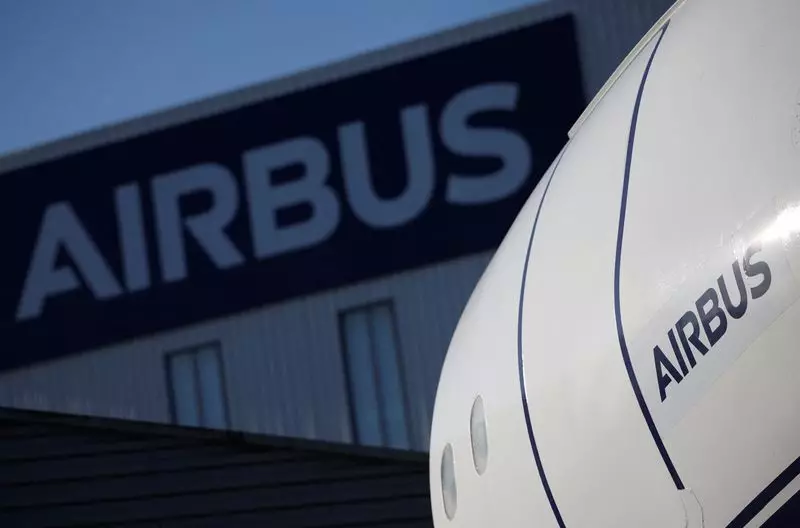Airbus, Europe’s largest planemaker, reported a sharp decline in second-quarter profits due to the cost of investing in higher jetliner production and pre-announced charges in its Space Systems business. The adjusted operating profit fell by more than half to 814 million euros, while revenue slightly increased to 15.995 billion euros. The company also took a charge of 989 million euros on forward losses in its space business, exceeding its initial estimate of 900 million euros provided with a profit warning last month.
Despite the decline in profits, Airbus still managed to exceed analysts’ estimates. According to a survey complied by the company, analysts were expecting a second-quarter adjusted operating income of 699 million euros on revenue of 15.822 billion euros. The charges in the Space Systems business now bring the total amount written off Airbus’s balance sheet to just under 1.6 billion euros in a span of just over five months.
The newly identified risk in the Space Systems business is mainly accumulated in the OneSat satellite project and EGNOS, a system designed to improve the accuracy of existing navigation signals. To address these challenges, Airbus is working on a review of its space activities and discussing potential alliances with Thales and Leonardo. A turnaround plan for Space Systems is expected to be detailed in September.
Airbus has launched an expanded cost-containment plan for its Defence and Space division, accelerating and deepening existing cost measures. This comes in addition to a new efficiency and cost plan for the commercial division. The immediate cost containment plan at the Defence & Space division is expected to start with a 2% reduction in budgeted spending plans for 2024.
Leonardo confirmed talks with Thales and Airbus regarding possible alliances in the space sector. Leonardo’s CEO emphasized the need for Europe to have a stronger structure to compete with the United States and China. Airbus is also in discussions about potential alliances with Thales and Leonardo to strengthen its position in the industry.
Airbus CEO, Guillaume Faury, mentioned being “blind-sided” by a shortfall in deliveries of LEAP engines made by CFM, a joint venture of GE Aerospace and Safran. This issue, combined with recent supply problems with competing Pratt & Whitney engines, has impacted Airbus’s operations. GE Aerospace highlighted that the supply of materials remained a key constraint, impacting engine output.
Despite these challenges, Airbus reaffirmed its softened goals for 2024, including a target of 770 airplane deliveries this year, down from the initial target of 800. The company is focused on addressing the issues in its Space Systems business, optimizing its cost structures, and improving its supply chain to ensure smoother operations in the future.
Airbus’s lower second-quarter profits reflect the challenges faced by the company in managing investment costs, mitigating risks in its Space Systems business, and addressing supply chain constraints. By implementing cost reduction plans, exploring strategic alliances, and focusing on operational efficiency, Airbus aims to overcome these challenges and sustain its position as a leading player in the aerospace industry.

